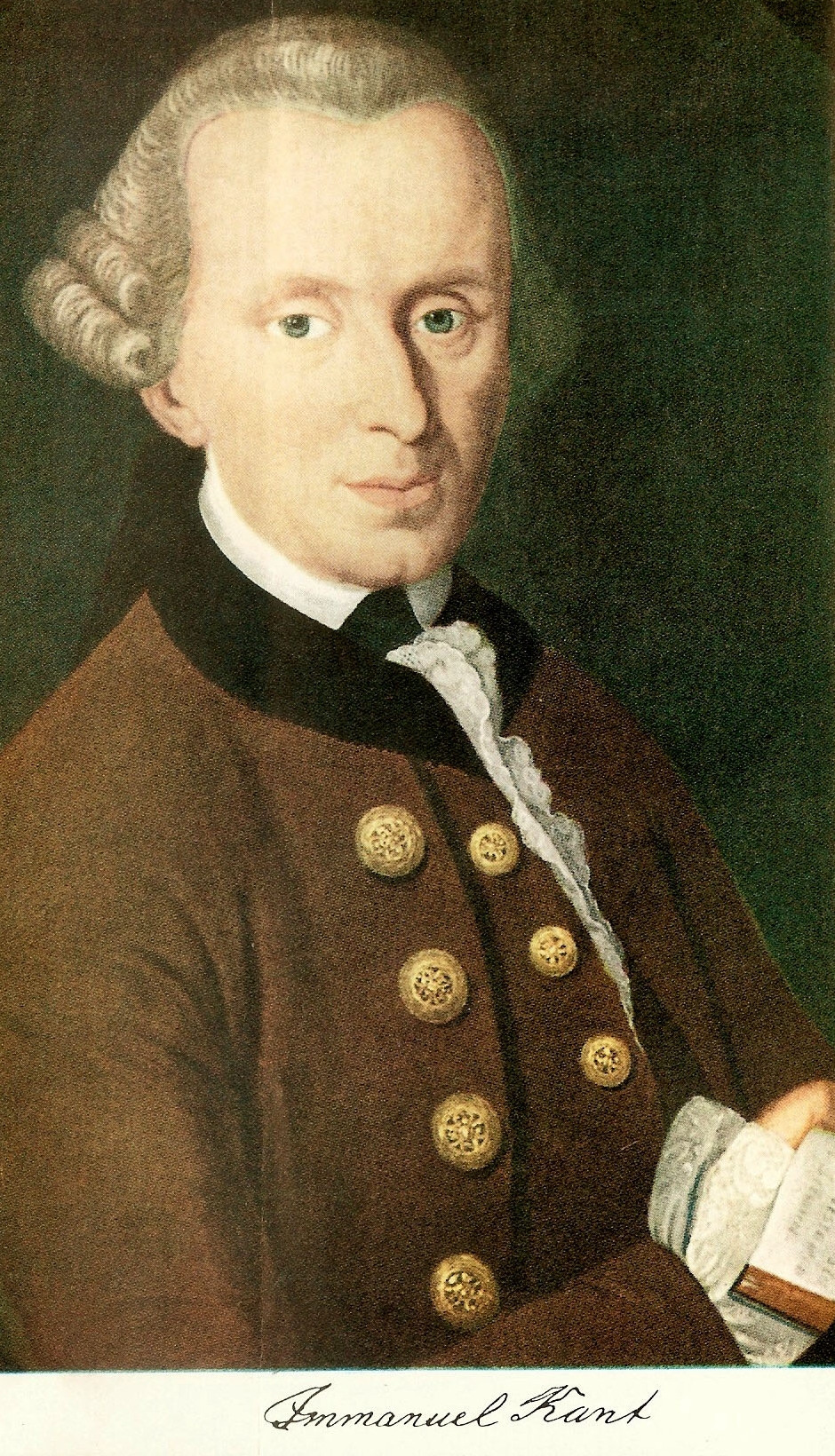“The concept of space is not abstracted from external sensations.”
Kant's Inaugural Dissertation (1770), Section III On The Principles Of The Form Of The Sensible World
Explore the profound wisdom of Immanuel Kant. His timeless quotes offer insights on life, freedom, and human nature, as well as love, reason, and the beauty of small details. Let his words inspire and guide you.
Immanuel Kant was a German Enlightenment philosopher known for his influential works in various fields such as epistemology, metaphysics, ethics, and aesthetics. He has been called the "father of modern ethics," "father of modern aesthetics," and the "father of modern philosophy." Kant argued that space and time are forms of intuition that structure all experience, but the nature of things as they are in themselves is unknowable. He wrote the Critique of Pure Reason to counter skepticism and proposed that objects conform to our spatial and temporal forms of intuition and the categories of our understanding. Kant believed reason is the source of morality, aesthetics arises from disinterested judgment, and he hoped for perpetual peace through international cooperation.
Born in Königsberg, East Prussia in 1724, Kant grew up in a pietist household with a strict education focusing on religion and language rather than mathematics and science. He went on to study philosophy at the University of Königsberg under influential thinkers like Gottfried Leibniz and Christian Wolff. After becoming a private tutor upon his father's death, he continued his research while publishing his first philosophical work in 1749. In 1781, Kant published the Critique of Pure Reason, which established him as one of the most important philosophers despite its difficult reception. Throughout his life, he wrote extensively on topics such as geography, history, politics, religion, and logic. Kant passed away in 1804 leaving behind an unfinished work called Opus Postumum. His remarkable contributions to philosophy continue to be studied and appreciated worldwide today.

“The concept of space is not abstracted from external sensations.”
Kant's Inaugural Dissertation (1770), Section III On The Principles Of The Form Of The Sensible World
Kant's Inaugural Dissertation (1770), Section III On The Principles Of The Form Of The Sensible World
Kant's Inaugural Dissertation (1770), Section III On The Principles Of The Form Of The Sensible World
Kant's Inaugural Dissertation (1770), Section II On The Distinction Between The Sensible And The Intelligible Generally
Kant's Inaugural Dissertation (1770), Section II On The Distinction Between The Sensible And The Intelligible Generally
Kant's Inaugural Dissertation (1770), Section II On The Distinction Between The Sensible And The Intelligible Generally
Kant's Inaugural Dissertation (1770), Section II On The Distinction Between The Sensible And The Intelligible Generally
Kant's Inaugural Dissertation (1770), Section I On The Idea Of A World In General
Kant's Inaugural Dissertation (1770), Section I On The Idea Of A World In General
“The deceiver is really the fool.”
Kant, Immanuel (1996), page 101
Anthropology from a Pragmatic Point of View (1798)
Kant, Immanuel (1996), page 100
Anthropology from a Pragmatic Point of View (1798)
Kant, Immanuel (1996), page 99
Anthropology from a Pragmatic Point of View (1798)
Kant, Immanuel (1996), page 95
Anthropology from a Pragmatic Point of View (1798)
Kant, Immanuel (1996), pages 94-95
Anthropology from a Pragmatic Point of View (1798)
Kant, Immanuel (1996), page 54.
Anthropology from a Pragmatic Point of View (1798)
.
Kant, Immanuel (1996), page 37
Anthropology from a Pragmatic Point of View (1798)
Kant, Immanuel (1996), pages 34-35
Anthropology from a Pragmatic Point of View (1798)
Kant, Immanuel (1996). Anthropology from a Pragmatic Point of View https://books.google.com/books?id=TbkVBMKz418C. Translated by Victor Lyle Dowdell. Southern Illinois University Press. ISBN 9780809320608. Page 33.
Anthropology from a Pragmatic Point of View (1798)
“The woman wants to dominate, the man wants to be dominated”
.
Kant, Immanuel (1996), page 220
Anthropology from a Pragmatic Point of View (1798)
Kant, Immanuel (1996), page 185
Anthropology from a Pragmatic Point of View (1798)
Kant, Immanuel (1996), pages 141
Anthropology from a Pragmatic Point of View (1798)
since it is at odds with itself, and since it does not tolerate any lasting principle within itself
Kant, Immanuel (1996), page 246
Anthropology from a Pragmatic Point of View (1798)
Kant, Immanuel (1996), page 226
Anthropology from a Pragmatic Point of View (1798)
Kant, Immanuel (1996), pages 219-220
Anthropology from a Pragmatic Point of View (1798)
Kant, Immanuel (1996), page 203
Anthropology from a Pragmatic Point of View (1798)
Kant, Immanuel (1996), page 195
Anthropology from a Pragmatic Point of View (1798)
Kant, Immanuel (1996), pages 181-182
Anthropology from a Pragmatic Point of View (1798)
Alles, was ausser dem guten Lebenswandel der Mensch noch thun zu können vermeint, um Gott wohlgefällig zu werden, ist blosser Religionswahn und Afterdienst Gottes.
Book IV, Part 2, Section 2
Religion within the Limits of Reason Alone (1793)
“One who makes himself a worm cannot complain afterwards if people step on him.”
Source: The Metaphysics of Morals (Metafyzika morálky)